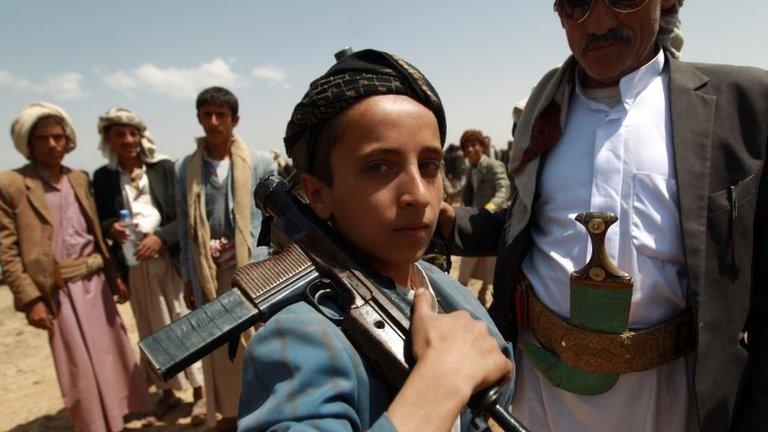Yemen war: Separatists declare autonomous rule in south
- Published
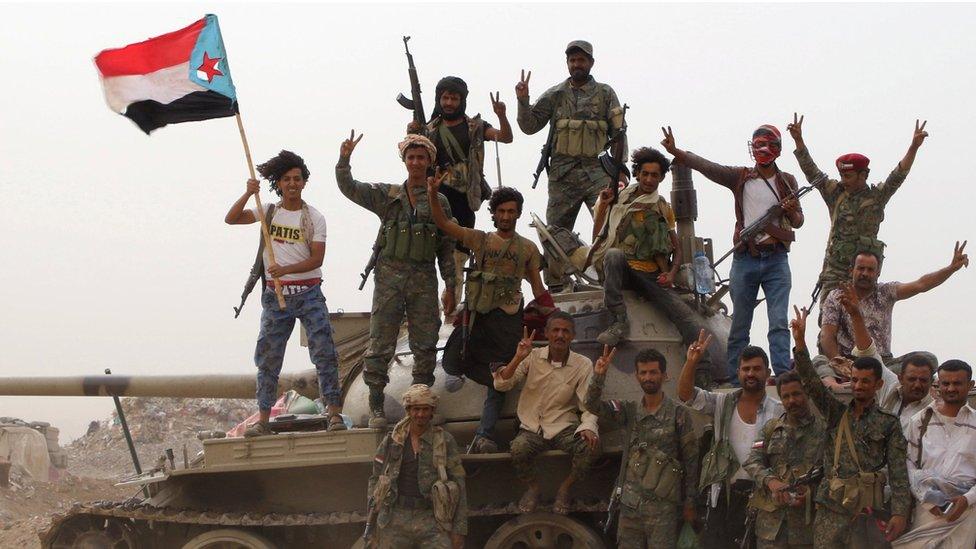
Separatists took control of the government's temporary capital Aden in August last year
Separatists in southern Yemen have declared self-rule, breaking a peace deal signed in November with the internationally recognised government.
The Aden-based Southern Transitional Council (STC) declared a state of emergency, saying it would govern the port city and other southern provinces.
The STC is supported by the United Arab Emirates.
The Saudi-backed Yemeni government warned of "dangerous and catastrophic consequences".
"The announcement by the so-called transitional council of its intention to establish a southern administration is a resumption of its armed insurgency... and an announcement of its rejection and complete withdrawal from the Riyadh agreement," Yemen's Foreign Minister Mohammed Al-Hadhrami said in a statement.
The two sides signed a power-sharing deal that was described by the UN as an important step towards ending Yemen's civil war.
A Saudi-led coalition launched a military intervention in support of the Yemeni government in 2015, after Houthi rebels seized the capital Sanaa. The UAE is a member of the coalition but supports the southern separatists.
In August last year, the STC took over the government's temporary capital, Aden, after accusing the administration of mismanagement.
Local authorities in six southern governorates out of a total of eight reject STC self-management.

Allies at loggerheads

This dangerous turn again highlights competing agendas of two Arab allies. The UAE, the STC's main foreign backer, has long been suspicious of Islamist elements in the Saudi-backed Hadi government, and frustrated by its performance. But the STC has also carefully courted the Saudis, especially since last year when the UAE pulled most of its own forces out of this messy conflict.
Emirati and Saudi officials will now both be scrambling to contain the damage at a time when Riyadh has been working with the UN to find its own way out of its war with the Houthis.
The STC has long demanded a seat at the negotiating table to ensure "credible southern representation." In an already complicated conflict, they were always told to wait - dealing with Houthi control in the north was the main priority.
"We had to use the military option to make our point, "an STC official told me a few months after they temporarily seized power in Aden. With November's Riyadh agreement still stalled, they've decided the wait is over.

Why is there a war in Yemen?
Yemen has been devastated by a conflict that escalated in March 2015, when the Houthis seized control of much of the west of the country and forced President Abdrabbuh Mansour Hadi to flee abroad.
Alarmed by the rise of a group they believed to be backed militarily by Iran, Saudi Arabia and eight other Arab states began a campaign aimed at restoring Mr Hadi's government.
At the start of the war, Saudi officials forecast that it would last only a few weeks. But five years of military stalemate have followed.
(March 2020) The doctor on the front line after years of war in Yemen
The UN has verified the deaths of at least 7,500 civilians, with most caused by coalition air strikes. But a monitoring group has estimated that the fighting has killed 112,000 people, including 12,600 civilians.
The fighting and blockade have also triggered the world's worst humanitarian crisis.
Some 24 million people - 80% of the population - need humanitarian assistance, and almost 10 million are considered "one step away from famine".

- Published5 November 2019
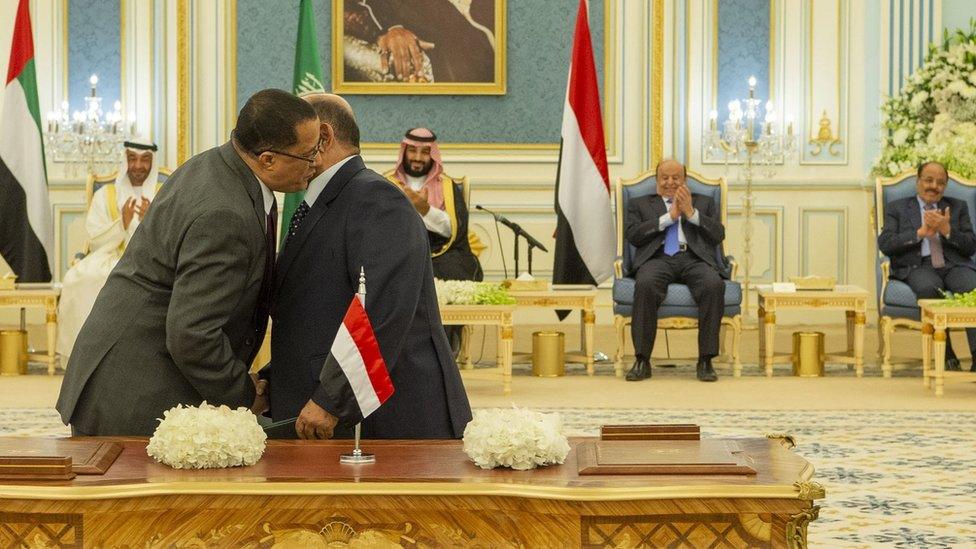
- Published11 August 2019
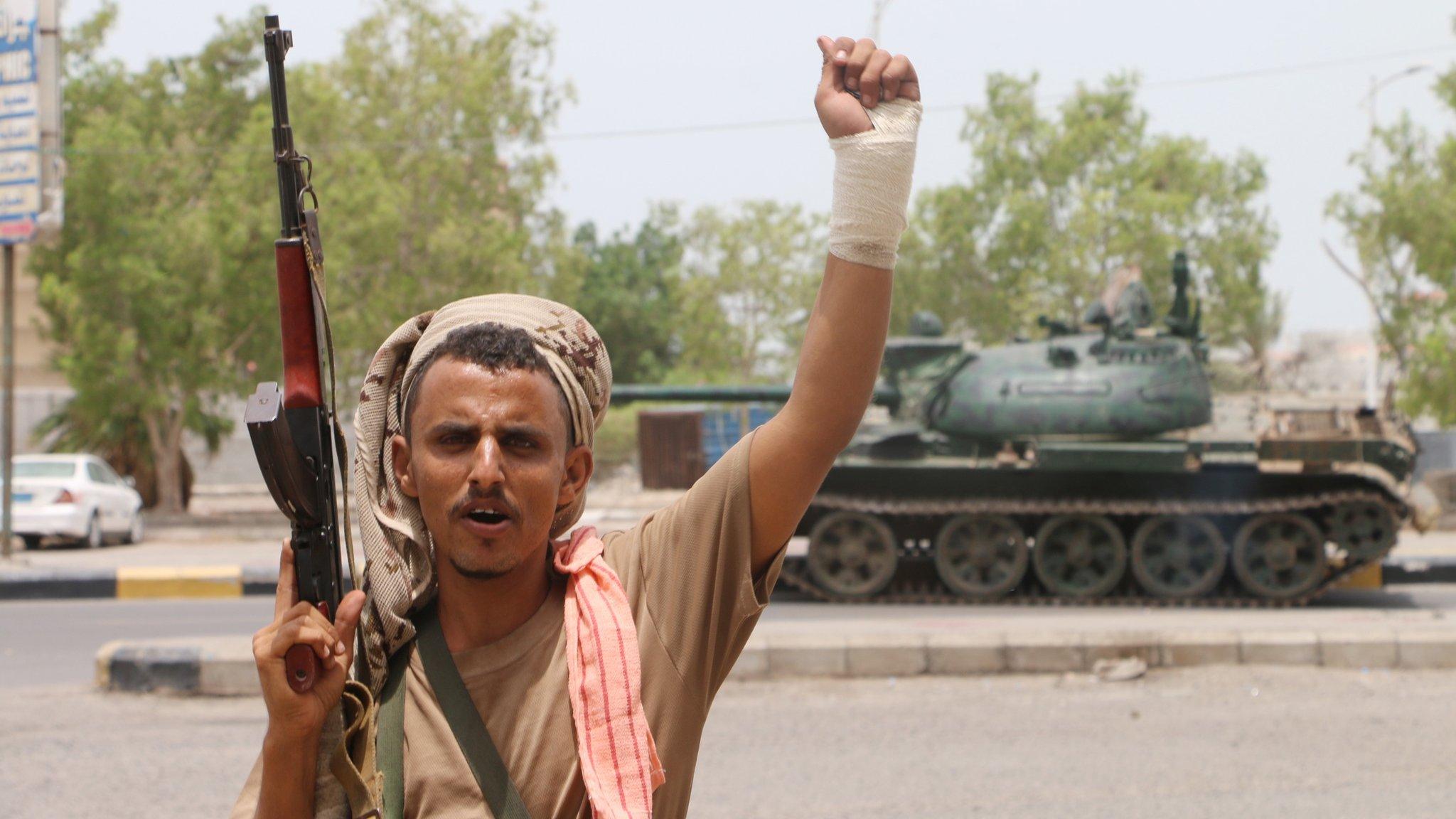
- Published30 January 2018
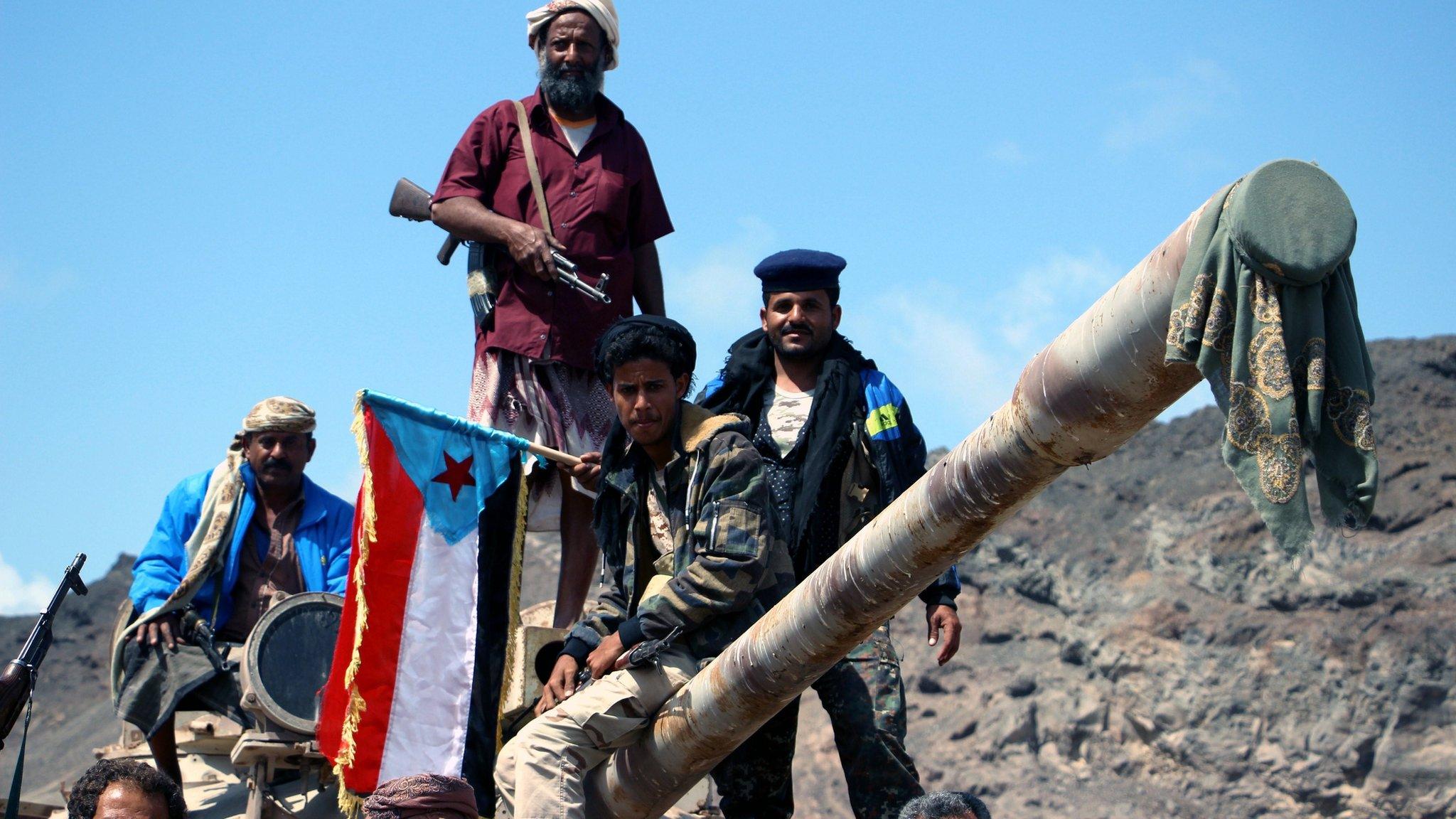
- Published13 June 2018
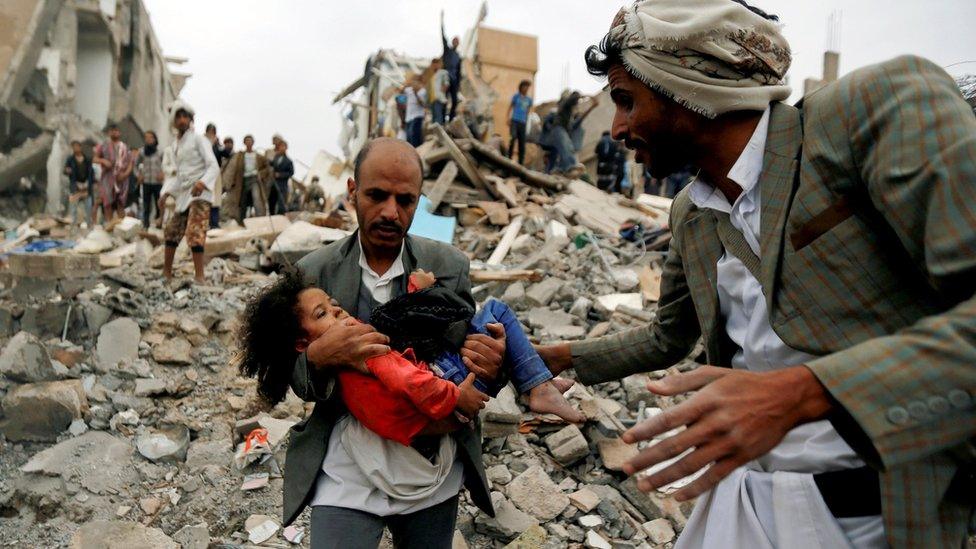
- Published14 April 2023
